A medical bag is an essential item for any nurse, but what is carried in that bag is equally as important as the bag itself.
In order to perform your job properly and efficiently, it’s a good idea to think about carrying these items in your medical bag.
*Disclosure: This post may contain affiliate links. If you click and make a purchase, I may receive a commission. For more info, please see my disclaimer.
Nurse Bag Essentials Checklist
Here’s my list of nurse bag essentials. I don’t personally carry all these items with me. (For example, I don’t carry a pulse ox with me. I just use the one the facility has). I know nurses that do and swear by each one.
1. “Click” Pens
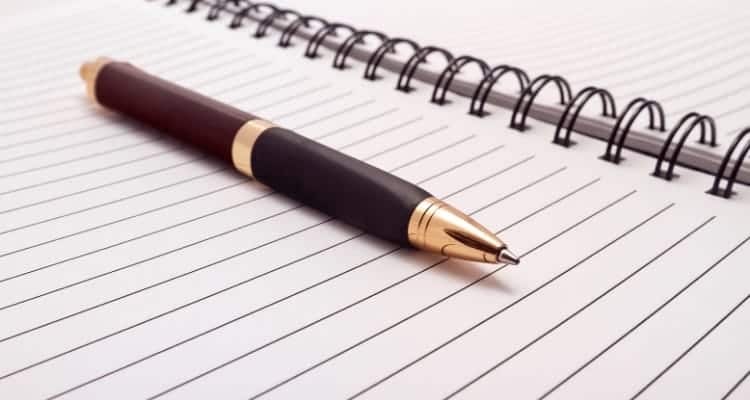
Nurses have to write a lot. Whether they’re filling out charts, jotting down notes, or completing discharge paperwork, having a pen handy at all times is a must.
“Click” pens are great because there’s no cap to lose, meaning your pen won’t dry out as quickly (source). You also avoid pen stains on your scrubs because the tip can be easily retracted into the barrel.
➡️ Check out our recommended pens for nurses.
2. Stethoscope
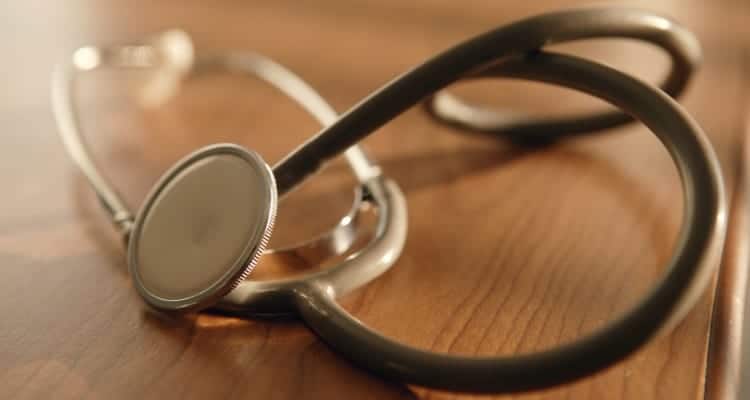
A stethoscope is one of the tools a nurse uses the most during their shift. It’s become synonymous with the nursing profession and is often used as a symbol for nurses.
A good stethoscope is something that’s needed by every nurse for every shift. Checking someone’s lungs, listening to their heart, or taking a patient’s blood pressure are all tasks that require a stethoscope.
Related Article: The Parts of a Stethoscope
3. Snacks

Long shifts mean a lunch or dinner break might not be enough to get you through. To keep your energy up, you should snack throughout your shift. Healthy snacks that are portable are the best options for busy nurses on-the-go (source).
A few options include:
- Granola bars
- Cheese sticks
- Whole fruit
- Nuts
- Trail mix
➡️ See our picks of healthy snacks for nurses.
Related Article: Weightloss Tips for Busy Nurses
4. OTC Pain Medications

Aches and pains come along with the job of being a nurse. Constantly being on your feet, running from patient to patient, and lifting heavy equipment can wreak havoc on the body.
Keeping over-the-counter pain medications in your bag for those minor aches and pains can help get you through a long shift. Acetaminophen (aka Tylenol) and ibuprofen are one of the top choices for pain relief.
5. Smartphone
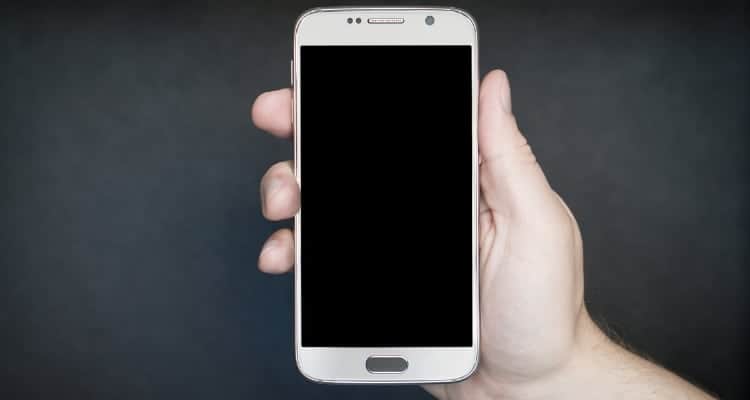
Being able to communicate with your loved ones in case of an emergency during your shift is crucial, especially for nurses who are often away from their desk.
Keeping your smartphone on hand is a good way to communicate when emergencies arise.
Smartphones also come in handy when you need to Google something, such as a patient’s medication (like from Rx List) or symptoms they might be experiencing.
Pro Tip:
Especially in the digital age make sure you’re mindful of when you use your phone and what your facility policy is concerning phone use.
6. Water Bottle
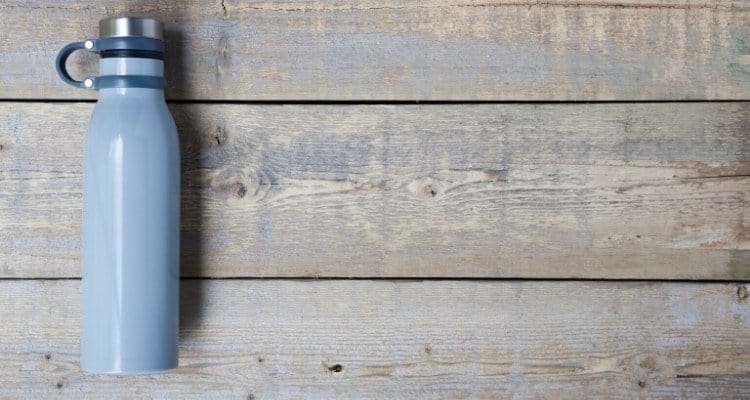
All that running around during your shift can leave you feeling parched. Avoid dehydration by keeping a water bottle in your bag at all times.
Water is the best beverage choice because it doesn’t contain any calories and nourishes all parts of the body, including the organs, skin, hair, and nails.
It’s recommended to drink at least eight 8-oz glasses of water each day.
Pro Tip:
Drinking at least 8-ounce glasses of water 8 times a day (2 liters or 1/2 gallon) is referred to as the 8×8 rule (source).
Related Article: 10 Best Water Bottles for Nurses
7. A badge on a Retractable Badge Reel
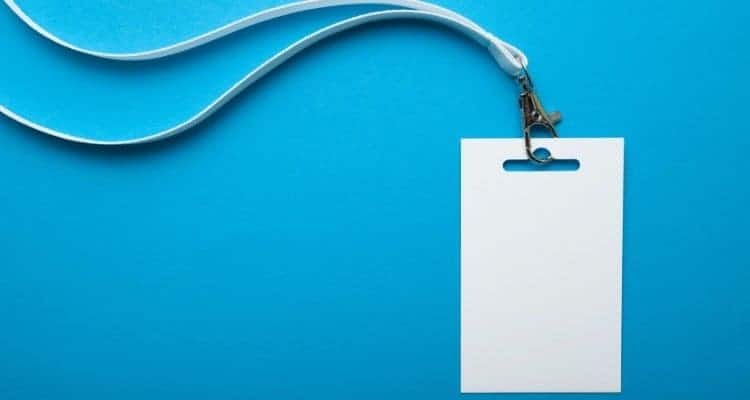
Your badge not only identifies who you are, but it also helps you gain entry to rooms and buildings that are only accessible by employees with the proper security clearance.
A badge reel allows you to keep your badge in a handy place while also giving you the ability to extend the badge away from your body without unclipping it.
8. Hand Lotion
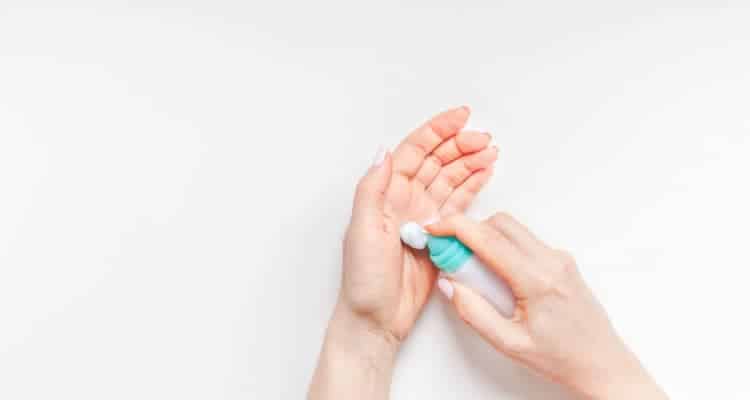
As a nurse, you’re exposed to countless germs during each shift. Washing your hands is a must to prevent the spread of infection to yourself and your patients.
All that hand washing can lead to very dry skin. Applying a good hand lotion at least 3-4 times per day is the best way to keep your hands hydrated and avoid skin conditions related to dry skin.
➡️ See our list of recommended hand lotions for nurses.
9. Hand Sanitizer
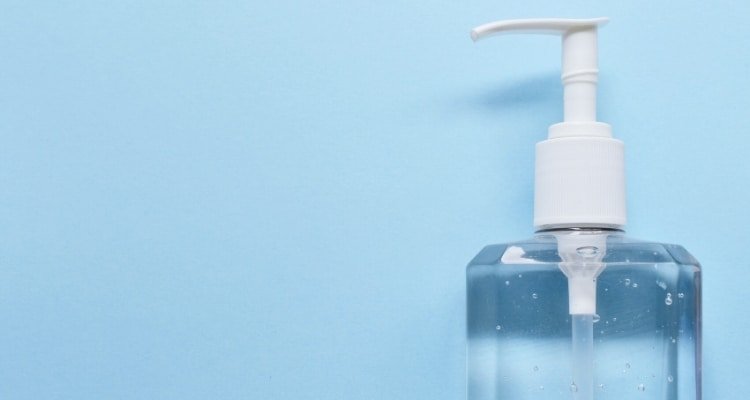
When you don’t have time to wash your hands or you aren’t near a sink, hand sanitizer is the best option to prevent the spread of infection.
Hand sanitizer should contain at least 60% alcohol in order to be effective against the kinds of germs and bacteria that can make you and your patients sick (source).
Pro Tip:
You should still wash your hands whenever possible.
10. Sharpie
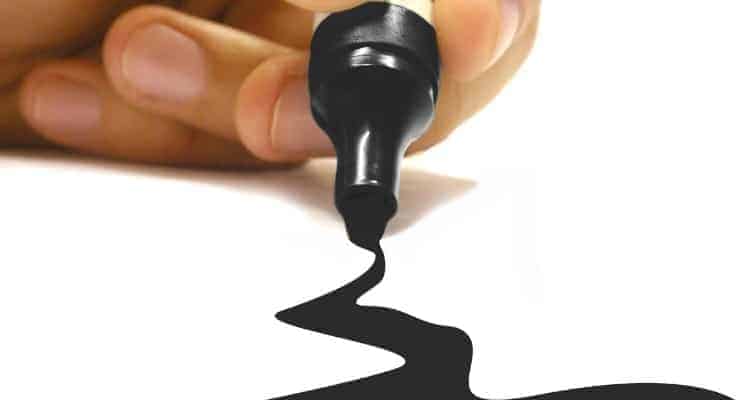
When writing in pen just isn’t enough, a Sharpie (or permanent marker) is the tool to use. A Sharpie makes your writing stand out, which is crucial for nurses who are constantly jotting down information regarding their patients.
Sharpies are also good for labeling charts and other documentation because they make it easy to identify the information you need fast, making you a more efficient nurse.
Pro Tip:
A fine tip sharpie such as this one is really good to have when you have to label something in a small area but you don’t want it to smudge.
11. Pen Light

A penlight serves many purposes.
For starters, you don’t always have good lighting when you’re working as a nurse, especially if you work in a large facility that may have darkened hallways or you’re working night shift and attending to a patient in a darkened patient room.
When good lighting or a flashlight isn’t easily accessible, a pen light is the next best thing.
Secondly and probably more obvious is when you have to do a pupil reflex test. Having your own penlight really can be a time saver and come in handy when you’re in a pinch.
➡️ Check out our recommended penlights for nurses.
12. Foldable Clipboard
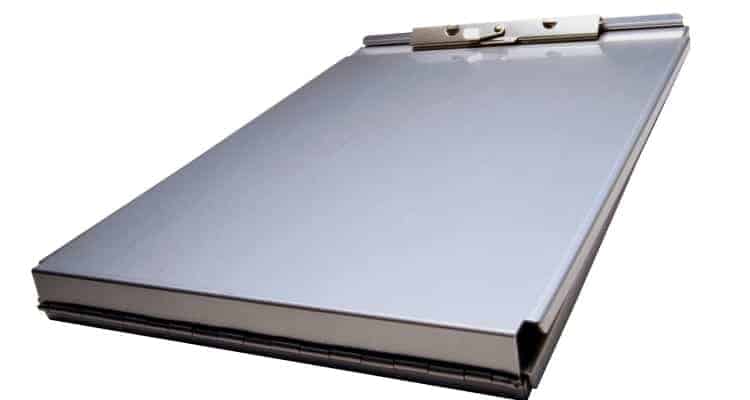
Since you might not always have a flat surface like a desk to complete your work on, a clipboard is an essential tool to carry around.
A foldable clipboard is compact and fits easily in your bag, but unfolds to a full-size clipboard.
It allows you to write legibly, which is vital for nurses who are filling out important information in patient charts.
Related Article: The Top Clipboards for Nurses
13. Nursing Scissors/Bandage Scissors
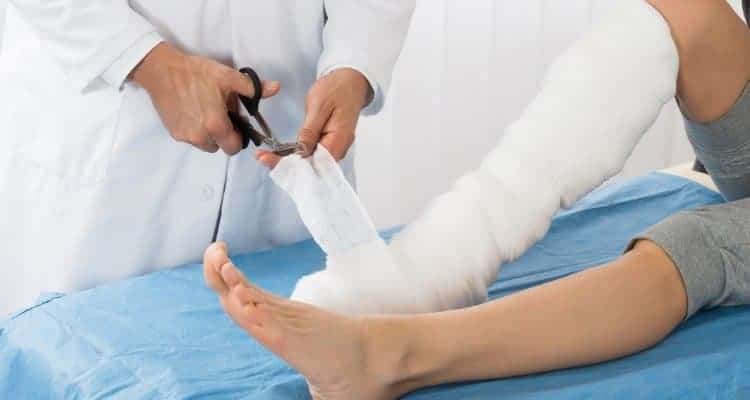
Nursing scissors also referred to as bandage scissors, allow nurses to cut bandages and other material off of their patients without risking cutting their skin. Since the tip is angled, the opportunity for injury is minimal.
Although hospitals and doctor’s offices are equipped with nursing scissors, having a pair handy in your bag to access quickly is always a good idea.
➡️ You can check out our list of recommended trauma shears for nurses. Or you can see Amazon’s top list of best selling bandage scissors and trauma shears.
14. Drug Guide
Knowing what type of medication you are dispensing to your patients, in addition to knowing the proper dosage instructions, is necessary to avoid drug interactions and overdoses.
A drug guide allows you to access information on the most commonly-prescribed drugs so you can rest assured you are always giving your patients the proper medications.
It can also answer frequently asked questions about common drugs patients might have.
Pro Tip:
Many facilities will probably give you access to an electronic drug guide, which usually will have information about drug compatibilities also (if applicable). If your facility doesn’t give you access to an electronic drug guide there are a lot of great drug guide apps as well (if you don’t want to deal with a physical drug guide).
15. Pulse Oximeter
One of the most common tasks you’ll perform as a nurse is checking your patient’s O2 saturation (source).
Measuring a patient’s oxygen level in the blood in a non-invasive way is the first step towards determining whether or not their medical situation is critical.
Many nurses I have talked to over the years prefer to carry their own pulse oximeter because they don’t want to rely on the facilities which may or may not work. Or might not be available when they need it.
Honorable Mentions
As I was making this list these are some of the other items I’ve seen other nurses keep with them in their nurse bag.
16. Change of Clothes
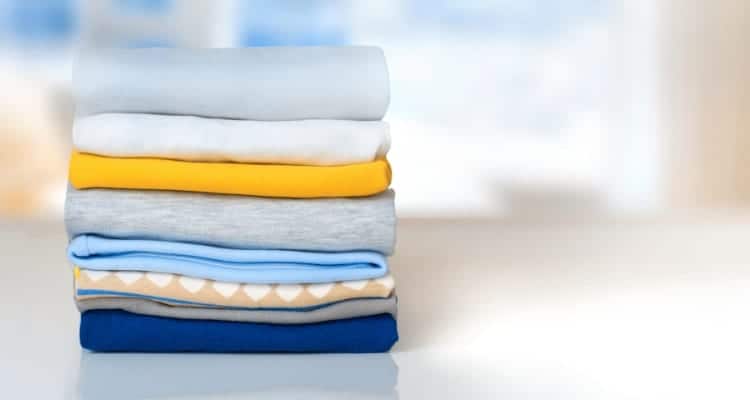
Nurses are often required to work long shifts at odd hours of the day. You may have to leave straight from work to attend meetings, go to the gym, or run other errands.
Having a change of clothes in your bag comes in handy for those days when you head straight from work to other activities.
A few must-haves are pants, a shirt, socks, and underwear. Also, another set of scrubs wouldn’t be a bad idea either.
Pro Tip:
Accidents, spills and bodily fluids are just part of the job sometimes. Having a fresh set of scrubs handy might be a good idea depending on what area of nursing you work in.
17. Light Sweater
Hospitals are usually really cold. It usually doesn’t bother me but I know a lot of nurses it does bother. Because of that a lot of nurses I know (especially night shift nurses) will usually keep some kind of light sweater with them.
18. A Watch
A watch is very important to keep track of time and just for helping you to stay organized. I use a fossil smartwatch myself but a lot of nurses will use a Fitbit or an Apple Watch.
➡️ Check out our recommended list of:
- Fitbit for Nurses (if you’re focused on fitness)
- The Top Smartwatches for Nurses (if you’re tech-savvy)
- The Best Nurse Watches (if you’re looking for the best overall watches).
Frequently Asked Questions
Here are some frequently asked questions related to essentials for nurse bags.
1. What is the best bag for nurses?
One of our favorite nurse bags is the Nurse Mates Ultimate Nursing Bag (on Amazon). You can go here to find our recommendations for top clinical bags and totes for nurses.
Final Thoughts
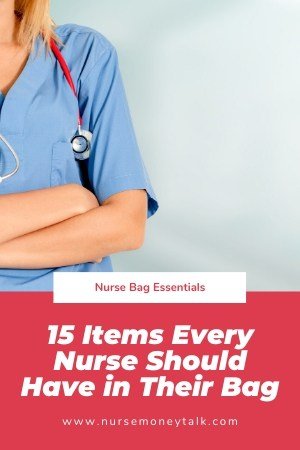
The job of a nurse is a busy one, but it’s also very rewarding. Being properly prepared with a bag full of essentials can make your job less stressful so you can enjoy your patients and the tasks you’re performing.

